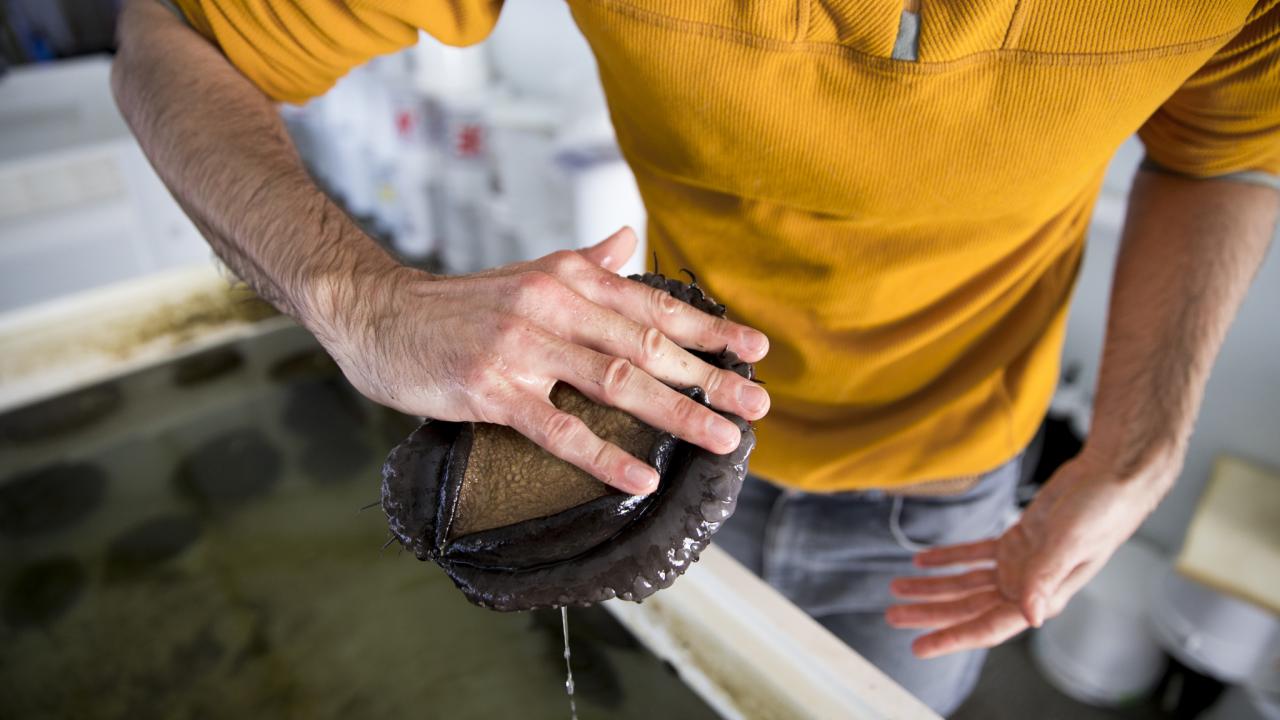
For Red Abalone, Resisting Ocean Acidification Starts With Mom
Red abalone mothers from California’s North Coast give their offspring an energy boost when they’re born that helps them better withstand ocean acidification compared to their captive, farmed counterparts, according to a study from the Bodega Marine Laboratory at the University of California, Davis.
The study, published today in the journal Proceedings of the National Academy of Sciences, compared the effects of ocean acidification on wild and farmed red abalone to identify traits that commercial growers and conservation managers could use to help sustainably produce California’s declining abalone species into the future. Such information could help these groups address accelerating negative climate change impacts facing the abalone aquaculture sector.
Read the full article here
Funding for this research was provided by the National Oceanic and Atmospheric Administration's Small Business Innovation Research Program (SBIR) which awarded funding to The Cultured Abalone Farm for the work in partnership with Bodega Marine Laboratory. The work was also funded by a grant to UC Davis from California Sea Grant.
About Dan Swezey:
Dan Swezey is a Project Scientist at the UC Davis Bodega Marine Laboratory (BML), as well as Lead Scientist with The Cultured Abalone Farm, a commercial abalone aquaculture business based in Santa Barbara CA. In collaboration with colleagues at BML, Dan conducts research focused on the conservation of red and white abalone, including work to understand impacts to these species resulting from climate change and ocean acidification. Beyond abalone, Dan has broad interests in marine aquaculture and works with a number of different partners to develop technologies and approaches for sustainable seafood production.
